The Buddha created a spiritual system that makes the monks entirely dependent on lay disciples for all their food. Disciples offer this food to the monks each day.
Monks are limited in when and what they can eat. They may only eat food during the morning, from dawn to noon. As well, they may only eat food that has been offered to them by a lay person who has put it in their bowl or their hand. If a hungry monk finds himself sitting beside a table with a banana on it, he may not pick up and eat the banana. He must wait till it is offered to him by a layperson. So twice a day families will come to the monastery to offer food and listen to teachings of the Buddha.
If you would like to take part in the meal offering, simply arrive at the monastery and ask where the dana-sala (alms hall) is. By that time the family offering the food may be doing some chanting at one of the shrines. There will be volunteers who have stayed behind who can give you instructions. Most likely you will help carry the dishes to the alms hall and hold them while someone spoons food into the monks’ bowls. If you are doing the spooning, you can continue to put food into the bowl until the monk puts his hand over the top to indicate that enough has been offered.
After the meal offering, one of the monks will give a talk to the family in Sinhala. If there is a monk available, you may get a talk in English.
When the monks’ meal is finished, you will likely be invited to share in the food. It is polite if you can accept this offer.
Mealtime Chanting
Before eating, monk reflect on the real purpose of eating by reciting these words taught by the Buddha:
Paṭisaṅkhā yoniso piṇḍapātaṁ paṭisevāmi: ‘neva davāya, na madāya, na maṇḍanāya, na vibhūsanāya, yāvadeva imassa kāyassa ṭhitiyā yāpanāya, vihiṁsūparatiyā, brahmacariyānuggahāya, iti purāṇañca vedanaṁ paṭihaṅkhāmi navañca vedanaṁ na uppādessāmi, yātrā ca me bhavissati anavajjatā ca phāsuvihāro cāti.
“Reflecting wisely, I use alms food neither for amusement nor for intoxication nor for the sake of physical beauty and attractiveness, but only for the endurance and continuance of this body for ending discomfort, and for assisting the holy life, considering: Thus shall I terminate old feelings without arousing new feelings and I shall be healthy and blameless and shall live in comfort.”

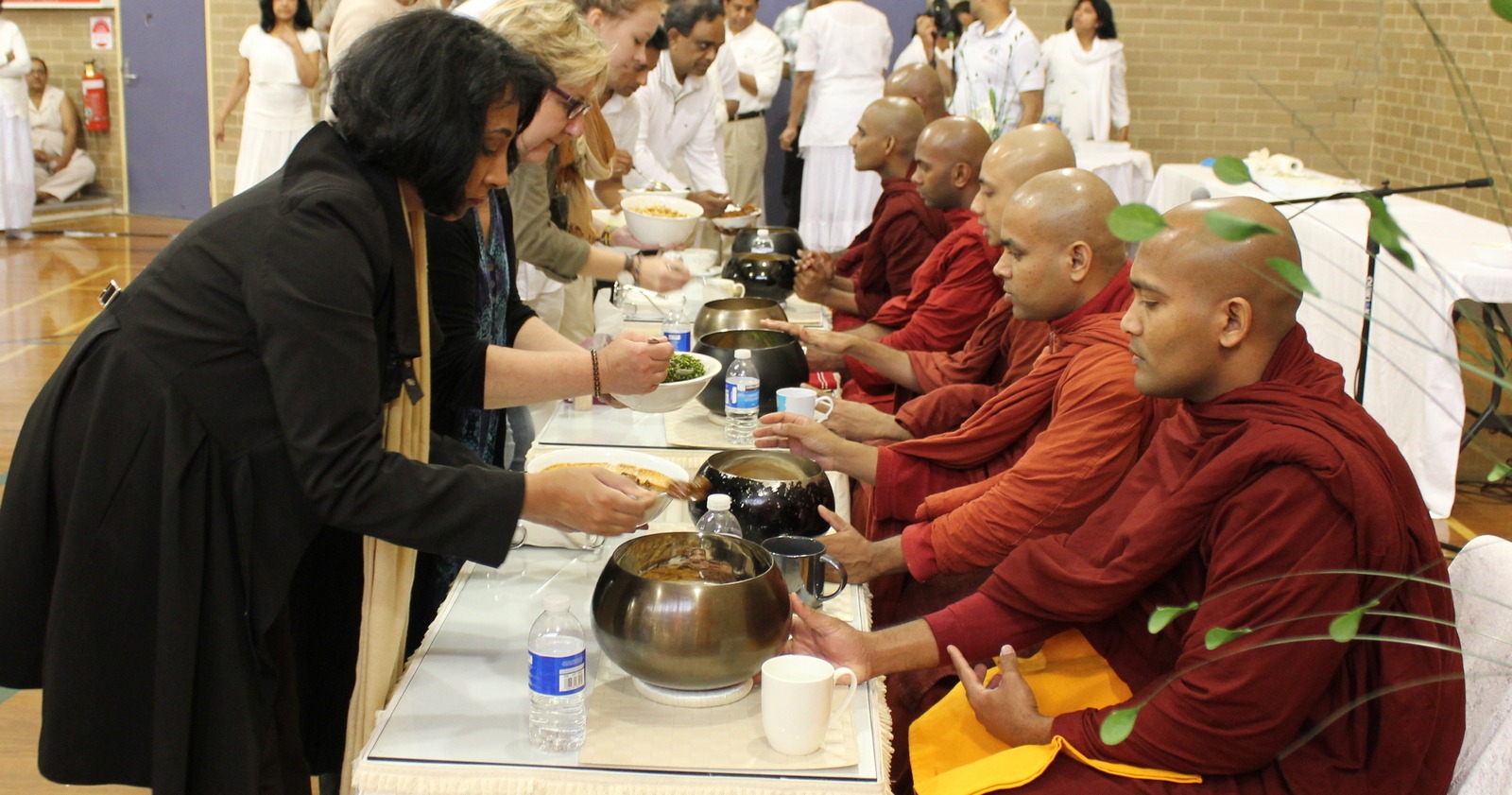
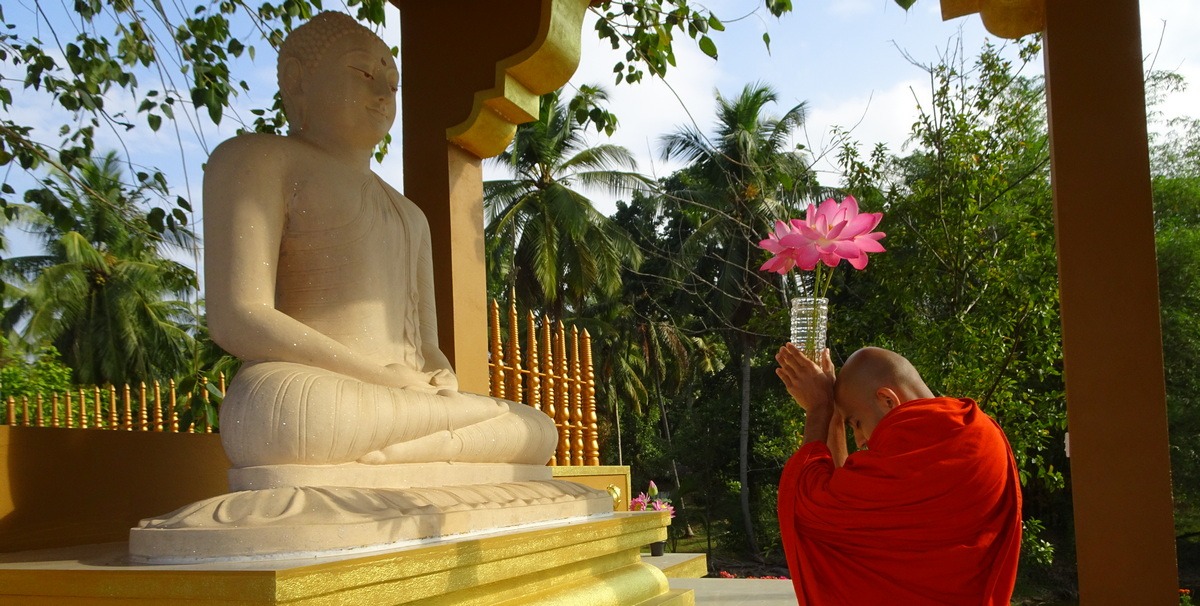
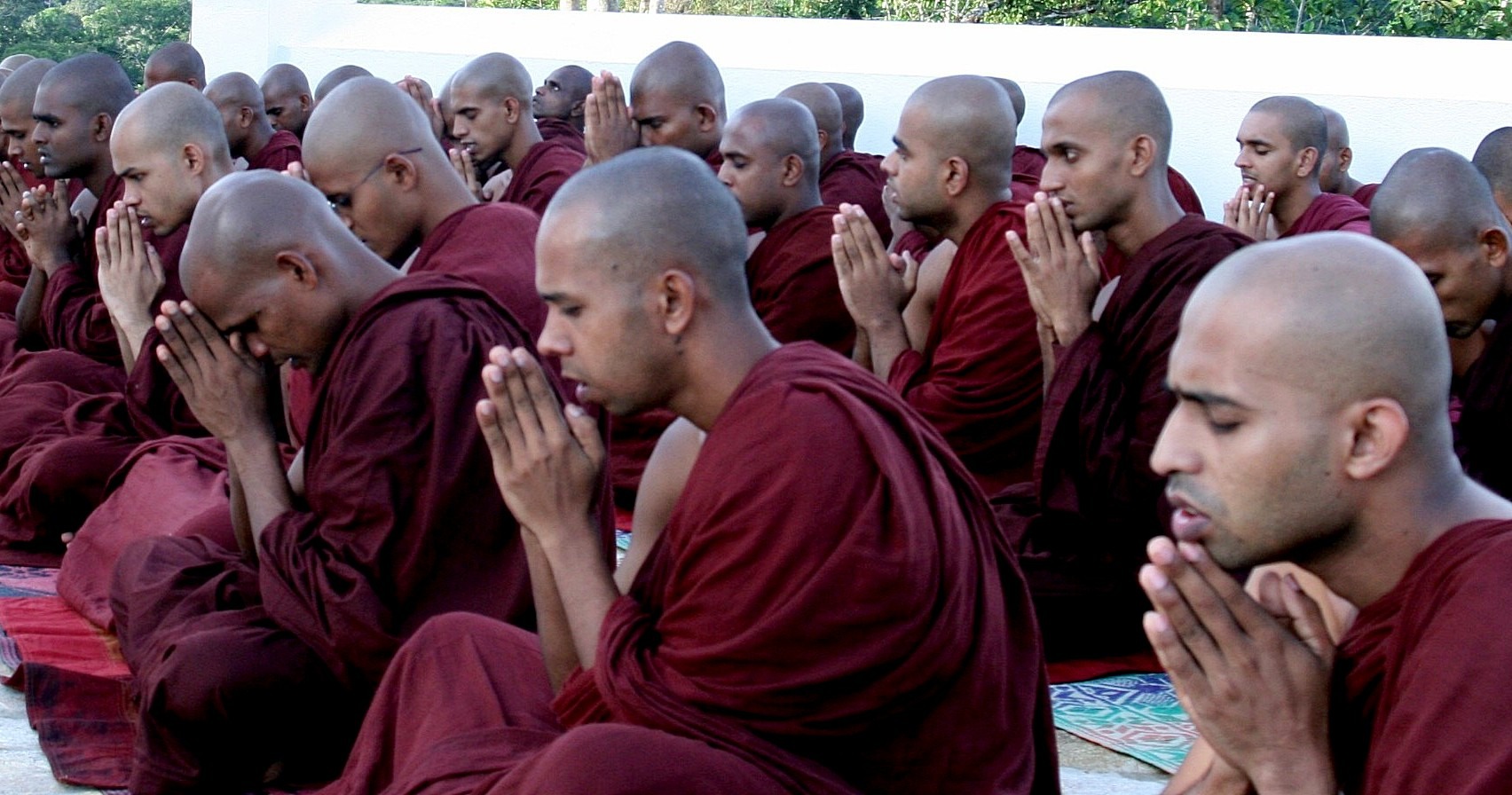
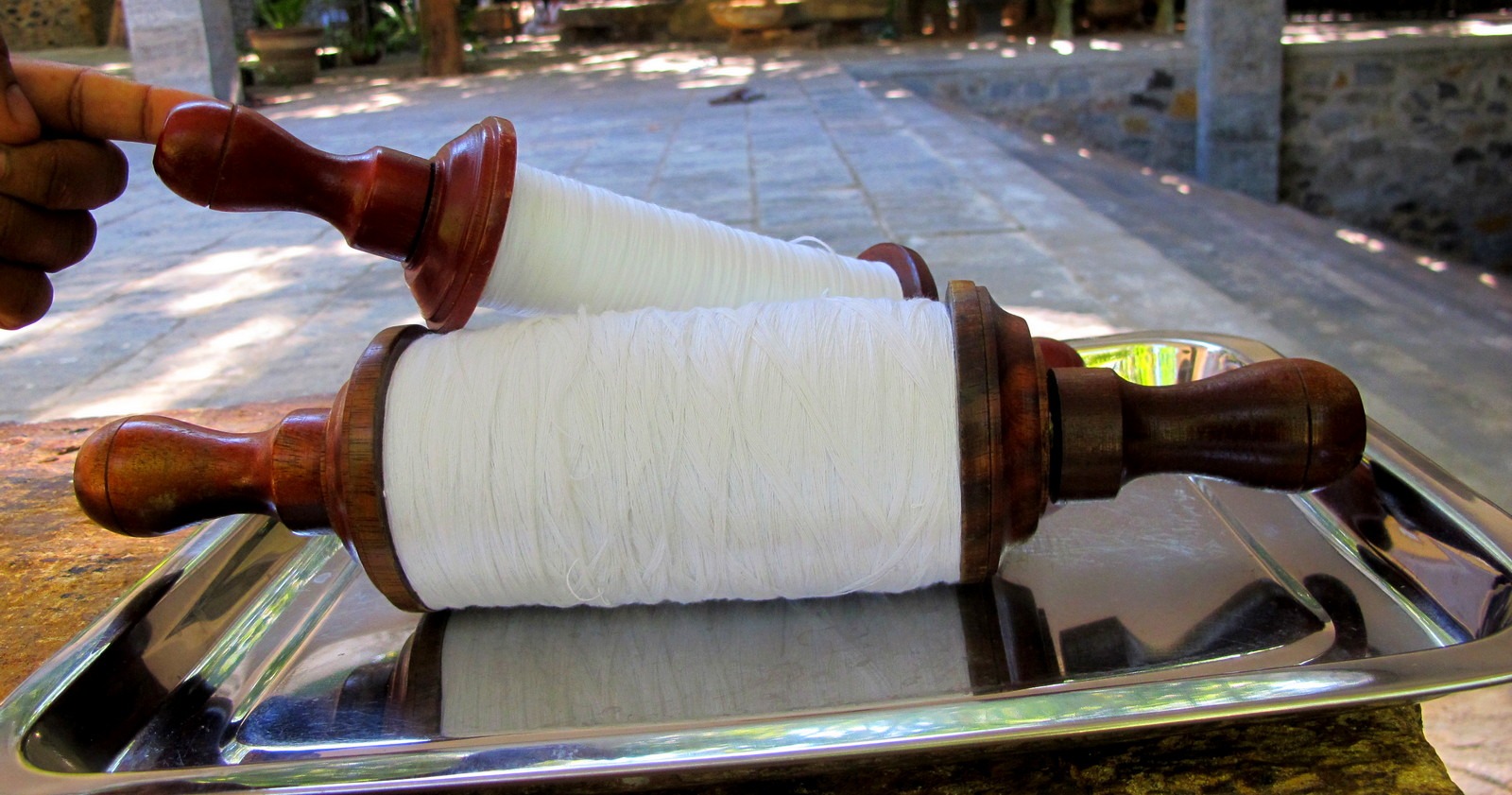
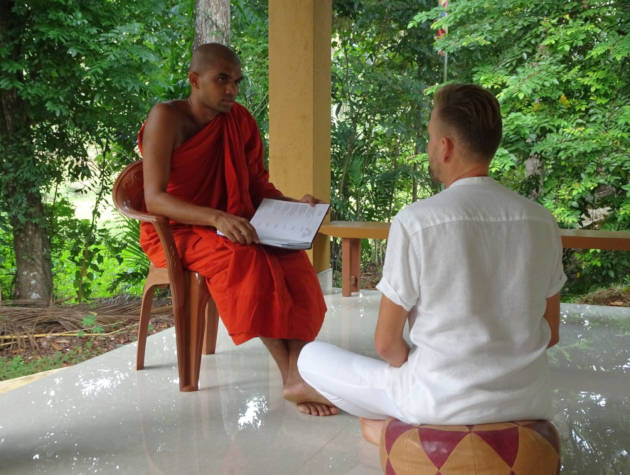
Have Lord Buddha requested that the Dhana should be offered to their plates only by males and not by females.
Kindly advise
That’s not right
I have to like to learn in mahamevnawa monastery pohalghela